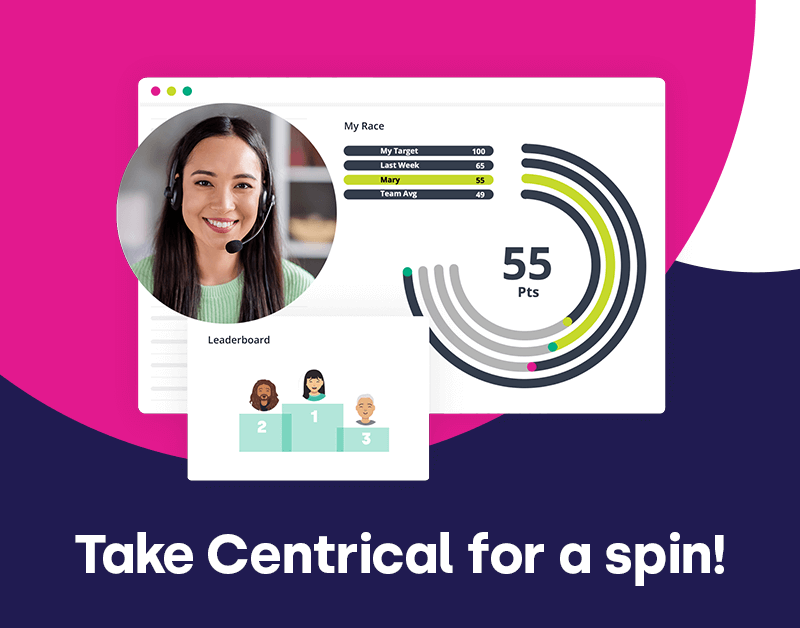Eric Carmen first recorded it in the 1970’s. More recently, Celine put her own stamp on the song. Titled “All By Myself,” it was a melancholy tale of someone yearning for the company of another. Perhaps it’s a tune sung by more than a few employees working remotely, away from the actual offices of their teams. The chorus began: “All by myself. Don’t wanna be all by myself.” In the midst of the Coronavirus public health crisis, thousands of frontline employees, the ones who interact with customers every day, suddenly find themselves working remotely. In all likelihood, they don’t want to be all by themselves.
To be sure, even with the most dedicated folks, there are three challenges that must be contended with when people work from their kitchen tables or an extra bedroom in their homes. First, there’s isolation. Being left on your own to tackle a project without distractions can hold meaningful benefits. Doing that, day after day, can cause a gnawing sense of isolation. During a crisis that feeling of being alone can heighten.
Then there’s productivity. Working on your own requires self discipline. Not everyone has it. While remote workers can be highly productive, the critical factor is whether they have the tools and techniques to develop or keep the discipline to stay focused. If they’re not in place before a crisis occurs, it’s unlikely they’ll be provided promptly, if at all, while it’s happening. Also, when you’re in the office, you can tap a co-worker’s shoulder to ask for advice or assistance. In a remote working situation, the same action may not be as efficient or effective, regardless of how many messaging platforms your company uses. If it’s all new for crisis-created remote workers, there’s a chance they won’t realize such work-related conversations need to be scheduled. Spontaneity evaporates.
For those folks added to the ranks of remote workers due to today’s crisis, their employers’ ability to overcome their predictable disconnection, disengagement and diminished performance is, in all probability, limited.
There may well see a repeat of the crisis we’re witnessing today. Perhaps a different virus, a shocking weather disaster or some sort of environmental calamity. But it will happen. It’s just how it is. And organizations, especially those with large headcounts, need to look at Centrical’s real-time employee performance management platform that utilizes gamification to motivate, train and manage employees, particularly the ones dealing with customers.
You may ask: why? To start with, even without crisis-creating events, we are seeing more companies opting to have large portions of their workforce operate remotely. As I’ve suggested, even equipping them with state-of-the-art systems and procedures, those employees are people. They won’t like being all by themselves on a constant basis.
The Centrical platform helps to keep employees engaged and focused on their work. Importantly, it also lets managers keep their team members driving toward their goals. With gamification, the application of game mechanics to achieve desired behaviors – not playtime, the whole process becomes fun; something people want to be involved in.
A hallmark of gamification is a series of competitions between peers, teams, and departments. Seeing how employees are doing and, importantly, what they need to do to get to the next level keeps them on task and instills a real sense of camaraderie whether co-workers are across town or on the other side of the globe.
One aspect of working remotely is the challenge to stay up-to-date on the various components of the job – from product information to pricing or regulatory procedures. Centrical lets employees learn in the flow of work. Since they’re literally stuck at home, traipsing off to a conference room for a training session is out of the question. The reason learning in the flow of work succeeds with Centrical is it involves personalized microlearning. That’s a remarkably effective way to present bite-sized pieces of learning content that’s easily absorbed and applied. For example, a customer service agent can complete a learning activity during a time inbound calls are slow. No impact on productivity. Big impact on improving skills and knowledge.
Importantly, all the measured efforts of employees can be reviewed in real-time by the workers and their managers to make even remote 1:1’s enormously productive.
No one wants to manage their employees in the midst of a health crisis. But, given the nature of our world, having the Centrical platform in-place will make things less debilitating when the next crisis occurs. And, unfortunately, you know it will.
Remember, forewarned is forearmed.
Engage and motivate your frontline teams
Improve performance with an AI-powered digital coach
Deliver world class CX with dynamic, actionable quality evaluations
Boost performance with personalized, actionable goals
Nurture employee success with the power of AI
Listen and respond to your frontline, continuously
Drive productivity with performance-driven learning that sticks
Drive agent efficiency, deliver client results
Keep tech teams motivated and proficient on products and services while exceeding targets
Maintain compliance while building customer happiness and loyalty
Enlighten energy teams to boost engagement
Engage, develop, and retain your agents while driving better CX
Improve the employee experience for your reservations and service desk agents







 Madeleine Freind
Madeleine Freind
 Natalie Roth
Natalie Roth Linat Mart
Linat Mart












 Doron Neumann
Doron Neumann Gal Rimon
Gal Rimon Daphne Saragosti
Daphne Saragosti Ella Davidson
Ella Davidson Ariel Herman
Ariel Herman Ronen Botzer
Ronen Botzer